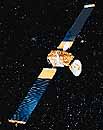 Tokyo - November 11, 1998 - The unfolding Japanese space scandal where NEC is accused of overcharging the National Space Development Agency of Japan has only just begun. Where it will end might just be where it started - the Self Defence Agency. Why the scandal began in the first place is just as important as the scandal itself, as little happens in Japan unless someone wins further down the line.
Tokyo - November 11, 1998 - The unfolding Japanese space scandal where NEC is accused of overcharging the National Space Development Agency of Japan has only just begun. Where it will end might just be where it started - the Self Defence Agency. Why the scandal began in the first place is just as important as the scandal itself, as little happens in Japan unless someone wins further down the line.Why did North Korea fire a missile over Japan? By any account it was a stupid action to take when you want Tokyo's cash to bail out your nation from starvation. Unless it might serve some other purpose or short term benefit.
For years America has pressured Japan to beef up it's defence expenditure and take more regional responsibility. Why the US does this remains a mystery as the current arrangement of maintaining large US forces in Japan suits the rest of Asia nicely - despite Chinese protestations to the contrary, and which are mainly aimed at humiliating Japan for continuing to be an "occupied" nation, rather than attacking America for interfering in "Asian" affairs.
Furthermore, support for Japan's war renouncing constitution remains very strong in Japan, and any move by the government to increase military activities is met with strong opposition at every turn.
The fear of domestic military involvement in Japan is so strong that during the Kobe earthquake, dock workers refused to tie up Maritime Defence Agency ships sent to Kobe to assist rescue operations.
But with the economy shot to pieces and the big companies in urgent need of government contracts, the push is on within Japan to beef up defense expenditure.
The biggest beneficiary of this will most likely be Japan's largest defense contractor - the Mitsubishi Group - and the only true surviving industrial conglomerate from before the war.
Generally known as Keiretsu groupings, the Mitsubishi Group is sometimes described by the old word for such groups, "Zaibatsu" - given Mitsubishi's systematic approach to rebuilding the group via cross shareholdings in the various companies that made up the original Mitsubishi Zaibatsu and which were forcibly divested in the post war period.
Toshiba is also an old guard company, that might align itself with Japanese hawks in the hope of getting its share of the military gravy train. And like Mitsubishi, Toshiba is very conservative and goes to great lengths to avoid showy pretense in its corporate offices.
Whereas, NEC is far more sophisticated in its corporate presentation and has long being regarded as the jewel in the crown of the Sumitomo Keiretsu, another partial survivor of the pre war Zaibatsu era and hence Mitsubishi's biggest rival.
So North Korea fires a missile over Japan, and Mitsubishi steps in with an old plan to build a network of spy satellites. With Toshiba in the dumps from years of close association with NASDA's spate of mission failures in the 1990s, NEC was Mitsubishi's only significant competitor for the spysat contracts Japan's hawks have now pushed to the head of the agenda.
But the danger now facing Japan's space and defense contractors is the high probability the investigation will quickly spread. Led by the zealous warriors of Japan's Ministry of Justice who are now striving to take the high moral ground against the endemic corruption that binds Japan's iron triangle of Bureaucracy, Government and Big Business together.
As an old guard ministry, the Justice Ministry has its own agenda for Japan's future and sees itself as one of the few ministries in Japan untainted by scandal.
How much of the overcharging by NEC was just cost shifting to accommodate bad budget planning by NASDA, Science and Technology Agency (STA) and the contractor (in this case NEC) remains to be seen. The same is possible for the defence agency contracts NEC is also alleged to have overcharged for.
As is so often the case in Japan, changing something after a decision has been made, is often harder than getting the original decision made in the first place. As such it is standard practise to shift budgets around as future needs might dictate.
The question that now needs to be asked is - why would NEC overcharge $20 million odd on $600 million worth of contracts?, especially when the company has been profitable throughout most of the '90s?
Or is it just that the Orwellian nature of Japan now calls for a scapegoat to take the blame for some other bigger problem that needs to be avoided. Or even worse, is NEC just a victim of a larger Machiavellian power play.
A further troubling aspect of this scandal is that NEC is essentially the sole contractor to Japan's second space agency ISAS for its science satellites. But there has been no mention of NEC overcharging ISAS.
ISAS is controlled by the Education Ministry, and along with the Justice Ministry has exerted significant control over Japanese society in the post war period. It would not take kindly to getting caught up in any Machiavellian games by other ministries or companies. Whereas NASDA is part of the STA which is an agency of the Prime Minister's department and there are few, if any, loyalties in that ministry to care about.
Japan SpySat Reports At Spacer.Com
SPACE.WIRE |